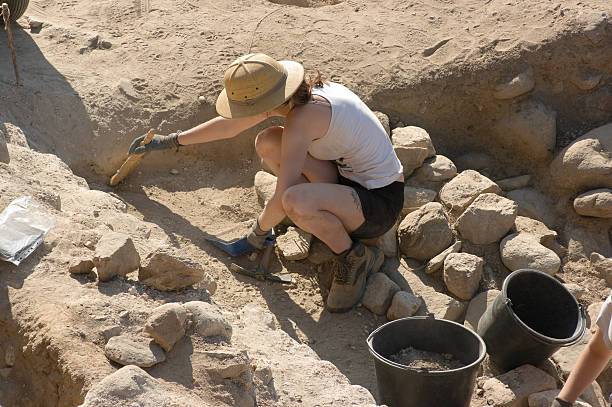The origin and spread of modern humans is a topic that has intrigued scientists for decades. Extensive research and evidence strongly support the theory that humans evolved out of Africa. This theory, known as the Out of Africa theory or the African Replacement Hypothesis, posits that our species, Homo sapiens, originated in Africa and subsequently migrated and replaced other hominin populations across the globe. Several lines of scientific evidence contribute to this compelling explanation of human evolution.
Fossil Record: The fossil record provides critical clues about human origins. Fossil discoveries in Africa, particularly in regions such as the Great Rift Valley, have revealed a rich diversity of early hominin species, including key ancestors in the human lineage. These fossils demonstrate a gradual progression of anatomical features from earlier hominins to Homo sapiens, with a concentration of transitional forms in Africa. Notably, the oldest known remains of Homo sapiens have been found in Africa, dating back approximately 300,000 years.
Genetic Studies: Genetic analyses have revolutionized our understanding of human evolution. By comparing the DNA of populations around the world, scientists have identified patterns of genetic variation that point to an African origin of modern humans. Genetic studies have revealed that the highest levels of human genetic diversity are found within African populations, suggesting that the African continent is the ancestral homeland of all modern humans. Additionally, studies tracing mitochondrial DNA and Y-chromosomal DNA, which are inherited maternally and paternally, respectively, have consistently shown an African origin of modern humans.
Archaeological Evidence: Archaeological findings further support the Out of Africa theory. Stone tools and other artifacts discovered in Africa provide evidence of early human technological advancements and cultural practices. The oldest known stone tools, attributed to Homo habilis, have been found in East Africa and date back over 2 million years. As archaeologists trace the spread of early human cultural innovations, they find a progression from Africa to other regions, supporting the idea of an African origin of our species.
Comparative Studies: Comparative studies of genetic and anatomical traits across different populations have revealed patterns consistent with a recent African origin of modern humans. By comparing the genetic diversity of different populations, scientists have found that non-African populations show lower genetic diversity than African populations. This suggests that non-African populations are descended from a smaller group of individuals who migrated out of Africa.
Molecular Clocks: Molecular clock analyses use genetic data to estimate the timing of evolutionary events. By comparing the genetic differences between populations, scientists can approximate when different groups diverged from one another. These studies consistently indicate that the most recent common ancestor of all modern humans lived in Africa approximately 200,000 to 300,000 years ago.
While the Out of Africa theory provides a comprehensive explanation for human origins, it is important to note that it does not discount the presence of other hominin species in regions outside of Africa. Fossil and genetic evidence suggest that interactions and interbreeding between Homo sapiens and other hominin species occurred during the migration out of Africa.
In conclusion, a vast body of evidence from the fossil record, genetic studies, archaeology, comparative analyses, and molecular clocks strongly supports the theory that humans evolved out of Africa. The high genetic diversity within African populations, coupled with the discovery of key hominin fossils and the progression of cultural innovations from Africa to other regions, all contribute to our understanding of our African origins. By piecing together these scientific insights, researchers continue to unravel the fascinating story of human evolution and migration across the globe.



No comments yet
Be the first to share your thoughts!